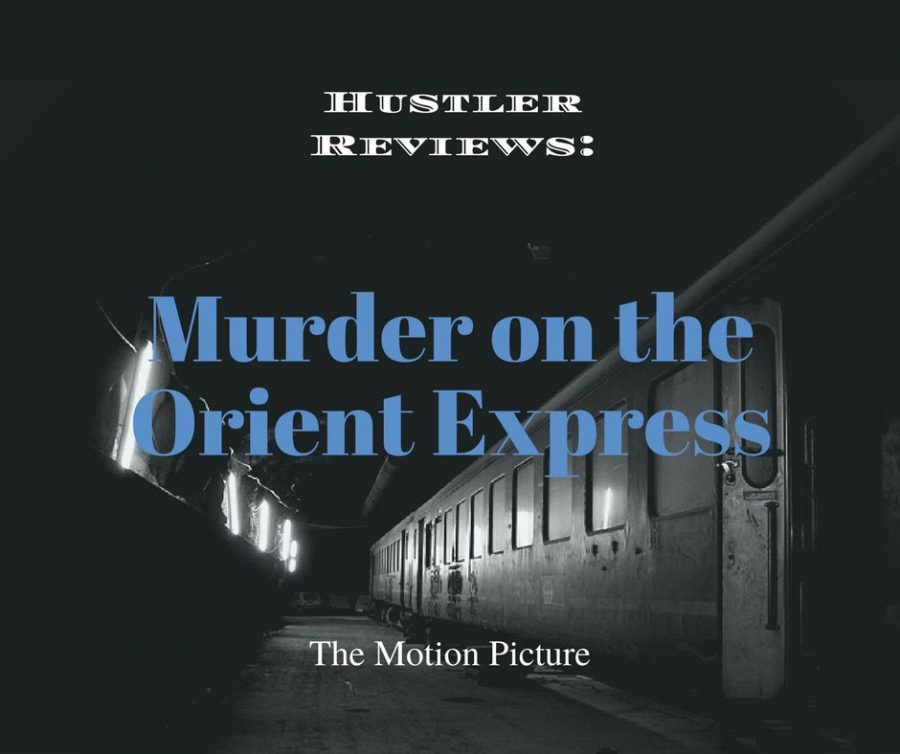A group of strangers onboard a passenger train suddenly become embroiled in a high-stakes murder investigation. Adapted from Agatha Christie’s 1934 novel, Murder on the Orient Express is a star-studded whodunit filled with intrigue and nostalgia. Climb aboard the ill-fated railcar this weekend—everyone’s a suspect and it’s up to you to solve the case before it’s too late.
Director Kenneth Branagh weaves a snowbound murder mystery with an A-list cast and a sweeping vision of twentieth century Eurasia. Murder on the Orient Express is a rich panorama of society in 1934, bringing corners of the globe together to achieve a story rife with discovery and drama. Hercule Poirot (played by Branagh himself) is a quick-witted, idiosyncratic detective, forestalling war in the Holy Land when we first meet him. He is soon whisked away by a European head of state, boarding the famed Orient Express for a brief holiday en route to his next case.
His railbound holiday is short-lived, however. When a fellow passenger is brutally murdered in his cabin, Poirot must interrogate the ten other passengers to identify the killer before he/she strikes again. From there, the audience is introduced to Poirot’s fellow passengers, each possessing a unique backstory full of intrigue and suspicion. Johnny Depp, Daisy Ridley, Michelle Pfeiffer, Judi Dench, Penelope Cruz, Josh Gad, Leslie Odom Jr., Willem Dafoe, Derek Jacobi, Lucy Boynton, Olivia Coleman and Sergei Polunin unify to create a diverse, interconnected world in the story’s 1934 setting. Meeting each character and comparing his/her story against the detective’s evidence is a delightful race against the clock. The case is far from open and shut, however, and Murder on the Orient Express strings you along masterfully before its dramatic finale.
While Branagh strings the audience along exceedingly well with a well-paced story and immersive characters, his movie at times veers into melodramatic self-importance. Poirot’s debut is a prime example. He first demonstrates his investigative prowess by single-handedly preventing war between Muslims, Jews and Christians in Jerusalem with a prosaic monologue written to garner ooh’s and ahh’s from the audience. His mustache is also over-the-top comically long and flush to his face. It’s meant to elicit bemused veneration, but instead teeters between archaic and cliché, suggesting the same of the director’s vision for his own character’s lead role. The movie’s dialogue and subthemes feel forced at times as well, as police officers go from reporting details of a case to Poirot one moment to philosophizing about human nature the next. This movie is at its best when it tells a simple, escapist story.
Overall, I had a fun time with Murder on the Orient Express. It’s a fun trip back to a bygone era with an engaging cast, a simple story structure, and a satisfying conclusion. Branagh tries to juggle too many themes at once, however, as this movie lacks weightier implications and suffers from forcing them. Forced attempts at profundity come with cheesiness, and I found myself wishing Poirot would stop staring so dramatically throughout the movie. Nonetheless, Branagh’s movie is a simple and lively tale that scores a 7/10. For an engaging story and a brief escape from responsibilities and schoolwork, go see Murder on the Orient Express this weekend.

